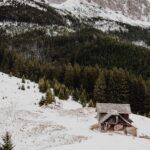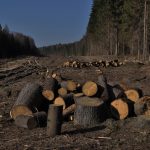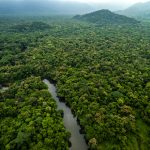
A new Greenpeace report, Nature Crime Files – Romania – Greenpeace International, followed the traces to the suppliers of furniture companies, such as IKEA. By closely examining the entire supply chain, from logging sites to wood depots, including scrutinising transport permits with geolocation attributes, and visiting processing facilities Greenpeace CEE found old-growth or other high conservation value destruction linked to at least seven different IKEA suppliers in Romania. Investigations identified at least 30 IKEA products, and some of IKEA’s well-known furniture, originating from these producers, raising a concern that wood from old-growth forests could ultimately end up in homes all over Europe and beyond.
The tracking system, known as SUMAL, depends on truck drivers uploading photographs of the wood they’re transporting, but it cannot detect fake images. Reporters discovered that some drivers had submitted photographs of drinking parties, chairs, and truck tires that went undetected.
In other cases, drivers are taking photographs of photographs, or reusing the same photos of wood multiple times, thereby obscuring the true contents of their trucks.
A transport company owned by the Austrian wood panel producer Kronospan has submitted what appear to be copied images for more than 240 transports of wood. Although Kronospan is almost certainly not the biggest offender, it is a multinational company with a supply chain spanning Europe.
A cross-border probe, led by ICIJ and first published in March 2023, involved 44 media partners globally and documented how Western environmental auditing firms and governments failed to stop the trade of wood logged in conflict zones.
The findings supported a June investigation from ICIJ partners Paper Trail Media, Der Spiegel, ZDF and others that similarly revealed how Russian timber continued to circumvent the EU’s embargo, making its way into the bloc by routing through countries like China, Turkey, Kazakhstan and Kyrgyzstan.
In March 2023, the ICIJ and 39 media partners published Deforestation Inc., a global investigation that exposed flaws in environmental auditing and certification programs intended to promote responsible forestry and combat illegal logging and deforestation. For this month’s episode of the Meet the Investigators podcast, we recorded a special live panel featuring reporters who had visited ravaged forests, tracked shipments of timber around the world, and trawled through corporate documents, leaked files and more to uncover the many ways in which a system designed to protect the environment, consumers and investors is failing with concerning frequency.
The situation in Myanmar, Romania, Indonesia, Germany is featured, as well as with the extent and nature of problems with falsified documents and certification systems more broadly.
An investigation by German publication Der Spiegel shows that Romania’s forests, some of the oldest in Europe, are threatened by large-scale illegal deforestation. The journalists explain in the investigation how several Austrian companies with tens of thousands of employees have made profits by contracting Romanian suppliers who illegally cut down trees.
The forests that the German journalists write about are located in Moldova, in the county of Suceava. The report was based on a previous large-scale investigation by Romanian authorities in the town of Bogdănești, which involved approximately 1,800 Romanian investigators. Among the crimes investigated by local authorities were illegal deforestation, money laundering, and tax evasion.
Click here to access the Global Illegal Logging and Associated Trade (ILAT) Risk assessment tool and to download the Forest Trends User Guide describing the functionality of the ILAT Risk Data Tool.
Click here to access the Cattle Data Tool.





